Beating cancer: our progress
20 years of Cancer Research UK. 120 years of progress for people affected by cancer.
Together we've come so far. But we have so much more to do.
Our strategy sets out how we'll accelerate progress towards a world where everybody can lead longer, better lives, free from the fear of cancer.
Core Info Filter
2023
Celebrating 1 million lives saved
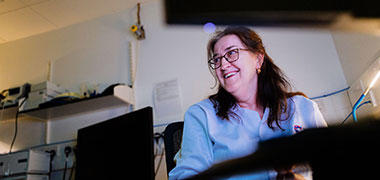
Celebrating 1 million lives saved

We reach an incredible milestone: thanks to advances in cancer prevention, diagnosis and treatment, more than one million deaths have been avoided in the UK since the mid-1980s.
We’re proud to be part of that story. You’re part of it too. Our supporters make our research possible. Since cancer deaths in the UK peaked in the 1980s, our supporters have helped us fill 40 years with lifesaving moments.
Shedding new light on lung cancer
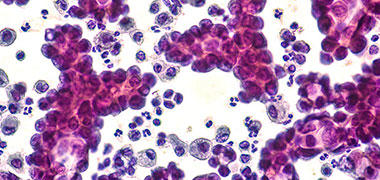
Shedding new light on lung cancer

TRACERx, our flagship lung cancer study, publishes a suite of results detailing how lung cancer can evolve, spread and resist treatment.
Armed with this knowledge, doctors treating people with lung cancer could identify those whose cancer is most at risk of returning after surgery and intervene by following up with further treatment, like chemotherapy, to help prevent it from coming back.
Establishing the first Teenage and Young Adult Cancer Awareness month
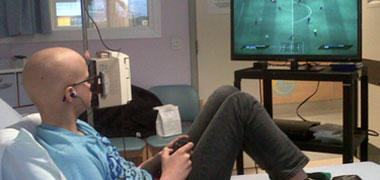
Establishing the first Teenage and Young Adult Cancer Awareness month

In collaboration with other cancer charities, we launch the first Teenage and Young Adult Cancer Awareness Month (TYACAM) in April.
Young people with cancer face unique challenges – challenges that can shape the rest of their lives. We set up TYACAM to highlight why better awareness of these issues is so important, as well as spotlighting the work we’re doing to lessen their burden.
Launching our Manifesto for Cancer Research and Care

Launching our Manifesto for Cancer Research and Care

In the lead up to a general election, we publish our ambitious cancer plan which, if adopted, would ensure UK is amongst the best in the world for cancer survival by 2035.
Our Manifesto for Cancer Research and Care, “Longer, Better Lives”, sets out how the next UK Government could dramatically improve cancer outcomes and prevent 20,000 cancer deaths a year by 2040.
Trialling new immunotherapies
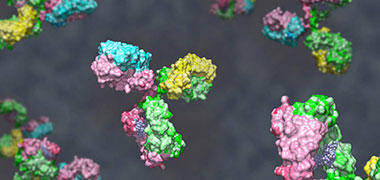
Trialling new immunotherapies

The first ever clinical trial to administer a special type of antibodies, called IgE antibodies, in people with advanced gynaecological cancers publishes results.
The trial, sponsored by our Centre for Drug Development, showed that when combined with the right screening tests, this new type of drug can safely be given to humans, with anti-tumour activity demonstrated in one patient with ovarian cancer.
Demonstrating breast cancer progress

Demonstrating breast cancer progress

The data from a study we funded reveal that women in England diagnosed with early invasive breast cancer today are around two-thirds less likely to die from the disease within the first 5 years after diagnosis than they were 20 years ago.
The study shows that 95% of women diagnosed with early invasive breast cancer today will survive their disease for at least 5 years.
Funding bowel cancer research

Photo credit: Holly Clark
Funding bowel cancer research

Photo credit: Holly Clark
The Bowelbabe Fund for Cancer Research UK announces the first projects to receive funding in memory of Dame Deborah James.
The fund, which raised an incredible £11.3 million in just under a year, was set up by Deborah in her final weeks, fuelled by her spirit of ‘rebellious hope’.
The 5 projects represent the cutting-edge of bowel cancer research, covering early detection, personalised medicine, and raising awareness of the signs and symptoms of cancer.
Finding new ways to treat cervical cancer
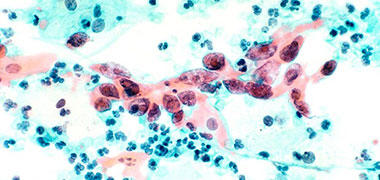
Finding new ways to treat cervical cancer

A trial we funded shows that giving cervical cancer patients a short course of chemotherapy before starting the standard treatment cuts the risk of death or of the disease returning by 35%.
Dr Mary McCormack, the lead investigator of the trial from University College London, described the results as “the biggest improvement in outcome in this disease in over 20 years.”
Working toward a smokefree society
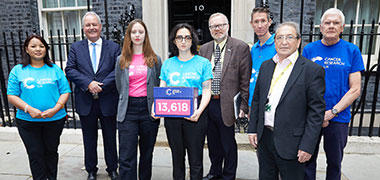
Working toward a smokefree society

We launch, and hand in to Government, our Smokefree UK Petition.
The petition is signed by almost 14,000 campaigners as well as 21 organisations from across the charity and health sectors. In addition to the petition, 53 cross-party MPs, Lords and Councillors signed a complimentary letter to the Prime Minister, asking him to support our call for a Smokefree Fund.
Later, the Prime Minister announces landmark plans to curb smoking for good in England, including plans to raise the age of sale of tobacco.
2022
Celebrating our 20th anniversary
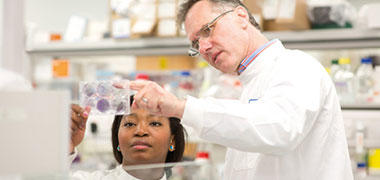
Celebrating our 20th anniversary

Cancer Research UK turns 20, and we celebrate the progress we’ve made over the last two decades and beyond.
New analysis reveals that overall, cancer death rates have decreased by 16% in the UK since we were founded. In the early 2000s, around 310 in every 100,000 people died from cancer each year in the UK. Today it’s around 260 in every 100,000.
Linking air pollution and lung cancer

Linking air pollution and lung cancer

Led by Professor Charles Swanton, our chief clinician, scientists find that exposure to air pollution promotes the growth of cells carrying cancer-causing mutations in the lungs.
They demonstrate that inflammation caused by air pollution ‘wakes these cells up’, encouraging them to grow and potentially form tumours. This could help us find better ways to prevent and treat lung cancers in people who have never smoked.
Improving cervical cancer screening
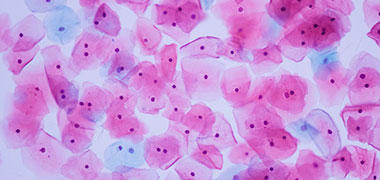
Improving cervical cancer screening

Our research confirms that offering cervical screening using human papilloma virus (HPV) testing effectively prevents cervical cancer without the need for as regular screening.
The study confirms that using HPV testing as the first-line test on cervical samples is more accurate at predicting who is at risk of developing cervical cancer, compared with cytology – the previous method of testing. This means that the time interval between cervical screens can be safely extended for those who test negative for HPV.
Funding new Grand Challenges teams
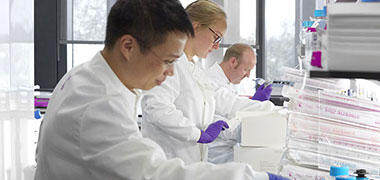
Funding new Grand Challenges teams

Cancer Grand Challenges, a global funding initiative co-founded by Cancer Research UK and the National Cancer Institute in the US, announces four new global research teams that will receive £20 million each to take on the biggest challenges in cancer research.
By funding these teams, Cancer Grand Challenges utilises the power of multidisciplinary collaboration to find bold solutions to challenges that continue to stand in the way of progress in cancer research.
Advancing research into children’s and young people’s cancers
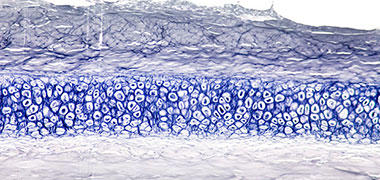
Advancing research into children’s and young people’s cancers

In partnership with Blood Cancer UK, we merge two existing biobanks to create the VIVO biobank, the UK’s leading biomedical research resource dedicated to storing samples and data of cancers in children and young people.
The partnership has created the widest collection of youth cancer samples available, helping to advance the high-quality research needed to develop new treatments faster.
Launching our Smokefree campaign

Launching our Smokefree campaign

We launch our official Smokefree UK campaign, to ensure the UK Governments stick by their commitments and take action to make the UK smokefree for good.
The campaign recommends the government takes a 2-pronged approach: stopping the start by raising the age of sale of tobacco products, and starting the stop by funding public health campaigns and stop smoking services to help people stop smoking.
Championing diversity in cancer research

Photo by John Nicholson
Championing diversity in cancer research

Photo by John Nicholson
We partner with Black in Cancer to host their inaugural conference at the Science Museum in London.
The conference brought together over 200 global experts from industry, charities, and research to strengthen the network between Black people in the cancer space whilst highlighting Black excellence in cancer research and medicine. In supporting this initiative, we look to make the cancer research community – and the research we fund – more inclusive and representative and help reduce inequalities in cancer.
Making progress on liquid biopsies

Making progress on liquid biopsies

The results from the Lung Cancer Circulating Tumour DNA (LUCID-DNA) study are published.
In the study, researchers find that patients who are at a higher risk of their lung cancer returning can be identified through a personalised blood test performed after treatment. Using methods liquid biopsy can help doctors make better choices about treating patients, improving the chances of survival for patients at higher risk while reducing side effects for patients at a lower risk.
Preventing overdiagnosis
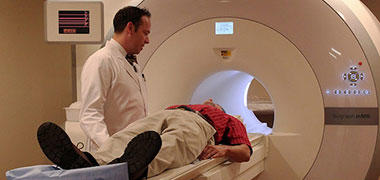
Preventing overdiagnosis

Research finds that using an advanced MRI technique, to observe in real time the metabolism of tumours, may enable doctors to pinpoint more aggressive or fast-growing prostate cancers
As some prostate cancers grow so slowly that if they went undetected the cancer would not result in any major problems, this technique allows clinicians to better guide treatment pathways, preventing what’s called overdiagnosis.
2021
Proving the power of the HPV vaccine

Proving the power of the HPV vaccine

Research we funded shows for the first time that the UK HPV vaccine programme works and will save lives.
The vaccine is shown to dramatically reduce cervical cancer rates by almost 90% in women in their 20s who were offered it at age 12 to 13, preventing around 450 cases of cervical cancer since the programme launched in 2008.
Supporting a world-first exhibition on cancer

Supporting a world-first exhibition on cancer

We are the expert partner for the Science Museum Group’s world-first exhibition, Cancer Revolution: Science, innovation and hope.
The exhibition shows how far we have come in preventing, diagnosing and treating cancer, as well as highlighting important challenges that are still to be solved.
Making progress for people with biliary tract cancers
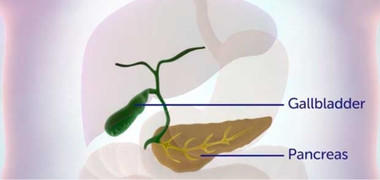
Making progress for people with biliary tract cancers

Results from a trial we funded leads to a change in practice for how we treat patients with advanced biliary tract cancer, providing a new, widely accepted standard of care.
They find that the chemotherapy combination FOLFOX is effective at treating patients who no longer respond to the standard treatment.
Boosting research into children’s and young people’s cancers
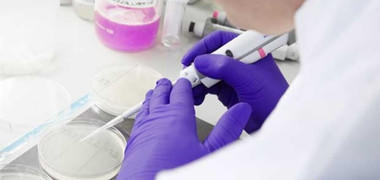
Boosting research into children’s and young people’s cancers

We join forces with Children with Cancer UK to co-fund the Cancer Research UK–Children with Cancer UK Innovation Awards.
5 new teams of world-leading scientists receive up to £1 million each to tackle the unique challenges presented by children’s and young people’s cancers.
Improving survival for people with mesothelioma

Improving survival for people with mesothelioma

Our trial finds that the immunotherapy drug nivolumab increases survival and makes the disease more stable for patients with relapsed mesothelioma compared to a placebo.
Funded by our Stand Up To Cancer campaign in partnership with Channel 4, it’s the first study to show a treatment can improve survival in patients with mesothelioma that’s come back after chemotherapy.
Committing to beating cancer for everyone

Committing to beating cancer for everyone

We launch our first charity-wide Equality, Diversity and Inclusion (EDI) strategy, outlining our commitments and setting out the immediate actions that we will take to improve, accelerate progress and change.
The strategy touches on all aspects of our work, from developing a more diverse and inclusive workforce and research community to reducing cancer inequalities.
2020
Supporting cancer patients during the COVID-19 pandemic

Supporting cancer patients during the COVID-19 pandemic

The COVID-19 pandemic transformed the way the world works, from our ability to fundraise to how our scientists do their research to how cancer patients can be diagnosed and treated. We have to make big changes to the way we work, but throughout the pandemic we’re committed to keep making a difference for cancer patients.
We provide the latest information about COVID-19 and the vaccine for cancer patients through our website and helpline, support our funded researchers to aid in the global effort to fight the virus, adapt the way we fundraise for a new virtual world, and analyse how the pandemic affects cancer services in the UK.
We continue to fight so that cancer and cancer patients stay at the top of the agenda, which wouldn’t be possible without the resilience of our staff, supporters, volunteers, researchers and clinicians.
Launching a transatlantic partnership to solve cancer’s toughest problems

Launching a transatlantic partnership to solve cancer’s toughest problems

Together with the National Cancer Institute, the US federal agency for cancer research, we launch Cancer Grand Challenges.
This major new partnership builds on the success of our Grand Challenge initiative and aims to solve the toughest challenges in cancer research by supporting diverse, global teams to come together and think differently.
Designing a roadmap to make early detection of cancer a reality

Designing a roadmap to make early detection of cancer a reality

Detecting cancer earlier offers arguably the single biggest opportunity to save lives from the disease, but there are many challenges of making this a reality.
Produced by consulting over 100 experts in the field, we publish the Early Detection and Diagnosis of Cancer Roadmap. It proposes a series of tangible recommendations to address these challenges and deliver a future where early detection of cancer is a routine reality.
Trialling a ‘sponge on a string’ to detect oesophageal cancer

Trialling a ‘sponge on a string’ to detect oesophageal cancer

Our researchers show that ‘sponge on a string’ pill test can identify 10 times more people with Barrett’s oesophagus than current GP care. Barrett’s oesophagus is a condition that can sometimes lead to oesophageal cancer.
The Cytosponge test could save many people from having unnecessary endoscopies whilst detecting cancer earlier when it’s more treatable.
Finding genetic 'fingerprints' that implicate a gut bacterium in bowel cancer

Finding genetic 'fingerprints' that implicate a gut bacterium in bowel cancer

Researchers funded through our Cancer Grand Challenges initiative find that a common type of bacteria found in our guts can release a toxin that causes unique patterns, or ‘fingerprints’, of DNA damage to the cells lining the gut.
These fingerprints were also seen in bowel cancer tumours, showing for the first time a direct link between the bacterial toxin and the genetic changes that drive cancer development.
Improving access to personalised treatments for children and young people with cancer

Improving access to personalised treatments for children and young people with cancer

Children and young people in the UK with cancers that have come back can now access new personalised treatments quicker than ever before thanks to a national tumour biopsy sequencing platform and clinical trial.
The Stratified Medicine Paediatrics programme uses molecular information from tumours to match patients to treatments on the ESMART trial, which is testing multiple new targeted drugs, and treatment combinations not previously available for children and young people.
Running a trial to benefit those most at risk of COVID-19

Running a trial to benefit those most at risk of COVID-19

We lent the expertise of our Centre for Drug Development to run the SPIKE-1 trial. The trial looks to test whether the drug camostat, used to treat inflammation of the pancreas, might also be able to reduce the severity of COVID-19.
The drug could be useful for people with cancer, who often have reduced immune systems, whilst also reducing the strain on the NHS to help get cancer services back on track.
2019
Transforming radiotherapy research in the UK

Transforming radiotherapy research in the UK

We commit £56 million through the Cancer Research UK Radiation Research Network (RadNet) to accelerate the development of advanced and pioneering radiotherapy techniques.
The network unites seven centres of excellence across the country with the aim of making radiotherapy more precise, tailored to the patient, and more effective than ever before.
Reinvigorating research into children and young people’s cancer
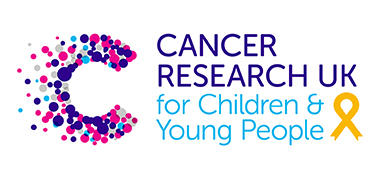
Reinvigorating research into children and young people’s cancer

Despite improvements in survival, cancer remains the leading cause of death by disease in children and young people aged 1-24 in the UK. And those who survive often experience serious long-term side effects from treatment.
To better understand this diverse group of diseases and to tackle the challenges preventing progress in this field, we launch a new research strategy alongside new branding – Cancer Research UK for Children & Young People – which replaces CRUK Kids & Teens.
Campaigning to prevent weight related cancers

Campaigning to prevent weight related cancers

Obesity is a cause of cancer, but this connection hasn’t always been well known.
As well as raising awareness of this link, we have been lobbying the government on policies to help reduce obesity rates and ultimately prevent more cancers.
Pioneering blood tests for personalised cancer treatment
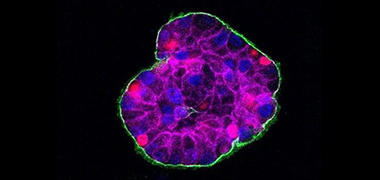
Pioneering blood tests for personalised cancer treatment

Our scientists have been developing blood tests that enable doctors to learn about a person’s cancer:
- ‘TARDIS’ is able to monitor how well treatments are working for people with early stage breast cancer, which could help doctors tailor treatments;
- The Stand Up To Cancer PlasmaMATCH trial identifies rare mutations in advanced breast cancer, which may enable patients to access effective treatments more quickly in the future;
- The TARGET trial matches patients who have run out of treatment options to life-saving clinical trials.
Revealing the secrets of lung cancer spread

Revealing the secrets of lung cancer spread

Our TRACERx study shows that we can detect the early signs that show if a patient’s lung cancer is likely to spread and become untreatable.
This provide clues as to which patients could be safely treated with milder therapies, such as surgery alone, and which may need additional treatments including chemotherapy.
Making treatments kinder for older or frail patients with advanced cancer

Making treatments kinder for older or frail patients with advanced cancer

Our GO2 trial shows that giving less chemotherapy is still as effective at controlling disease for elderly or frail patients with advanced cancer of the stomach or oesophagus, and leads to fewer side effects.
The results could change the standard of care for patients who can’t have full dose chemotherapy due to their age or frailty.
Mapping oesophageal cancer genes to reveal new drug targets

Mapping oesophageal cancer genes to reveal new drug targets

Our researchers map genetic mutations that cause the main subtype of oesophageal cancer in unprecedented detail.
They found that over half could be targeted by drugs that are currently in trials for other cancer types, meaning clinical trials to treat oesophageal cancer could be feasible in just two years.
New Grand Challenges

New Grand Challenges

We award 3 new international Grand Challenge teams £20 million each to take on some of the toughest challenges in cancer research.
SPECIFICANCER will find out why cancers grow in some tissues and not others; STORMing Cancer are looking at new ways to tackle inflammation associated cancer; and OPTIMISTICC are manipulating the microbiome to beat bowel cancer.
2018
Showing how many cancers could be prevented

Showing how many cancers could be prevented

We help people make informed decisions about their health, after showing how many cases of cancer in the UK are preventable.
The research finds that more than 135,000 cases each year – around 4 in 10 – could be prevented in the UK through lifestyle changes. This updates earlier work funded by us in 2011.
Building the case for better prostate cancer tests

Building the case for better prostate cancer tests

Our scientists show that a one-off PSA test doesn't save lives, in the biggest prostate cancer clinical trial to date.
After following more than 400,000 men for a decade on average, they find that screening using the PSA test didn't reduce the number of men who died from the disease.
They also show that a one-off test could miss some cases, while also flagging others that wouldn't have gone on to do harm. This highlights the need for better tests to help diagnose the disease.
Boosting brain tumour research

Boosting brain tumour research

We commit to an extra £25 million of funding over 5 years into brain tumour research, in a bid to speed up progress against the disease.
This investment includes supporting new specialised research centres.
The first of such centres, the Children's Brain Tumour Centre of Excellence in Cambridge, opened at the start of the year.
This unites world-leading experts in the field to discover and develop new treatments for brain tumours in children.
Reducing hearing loss in children after treatment

Reducing hearing loss in children after treatment

We take a major step towards reducing side effects from cancer treatment, showing that a new drug can almost halve hearing loss in children following chemotherapy for liver cancer.
The SIOPEL-6 clinical trial finds that giving these children a drug called sodium thiosulphate after chemotherapy treatment using cisplatin can substantially reduce hearing loss.
This marks great progress towards minimising the number of children who have long-term side effects after cancer treatment, and could change the way some patients are treated in the future.
Tracing kidney cancer's genetic history to personalise treatment
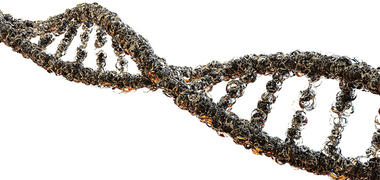
Tracing kidney cancer's genetic history to personalise treatment

Our scientists begin to unravel the evolution of kidney cancer.
The TRACERx study shows that the disease follows 3 distinct evolutionary paths, based on patterns of genetic changes that occur over time. These 3 types of cancer behave and progress differently.
In the future, this could help doctors work out the best treatment option for patients.
Securing the Government's sugar tax

Securing the Government's sugar tax

In a bid to tackle obesity, the Government's sugar tax comes into force, thanks in part to our work.
The Soft Drinks Industry Levy charges manufacturers based on how much added sugar their beverages contain.
We provided robust evidence in support of the policy, such as showing that up to 3.7 million cases of obesity could be prevented by 2025 through its introduction.
Driving government action to tackle childhood obesity

Driving government action to tackle childhood obesity

The government launches its bold new plan to tackle childhood obesity.
The plan demonstrates how the government has listened to our extensive campaigning on the issue. Aiming to halve childhood obesity by 2030, this includes a proposal to ban junk food advertising before the 9pm watershed.
We began campaigning for this measure to be introduced in 2016 after research – including our own – showed how these ads can negatively impact children's behaviour and consequently their health.
2017
Building the evidence for a new bowel screening technique
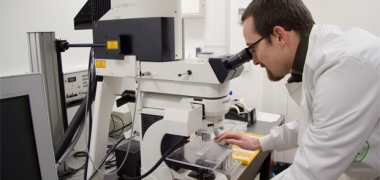
Building the evidence for a new bowel screening technique

A new bowel screening technique called flexible sigmoidoscopy, or ‘bowel scope’, begins to get rolled out across the UK.
Our scientists provide some of the most robust evidence for this technique.
They show that a one-off procedure could significantly reduce the number of bowel cancer cases and deaths.
Helping lung cancer patients choose the best treatments
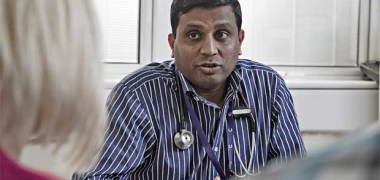
Helping lung cancer patients choose the best treatments

Our CONVERT clinical trial results show the benefits of combining chemotherapy and radiotherapy.
Lung cancer patients can now decide, with their doctor, on the radiotherapy course that’s most suited to them.
If also having chemotherapy, patients can halve their overall treatment time by receiving their radiotherapy twice a day. Results show this is as good as once-daily doses for some lung cancer patients.
Finding the best treatment option for pancreatic cancer

Finding the best treatment option for pancreatic cancer

We continue to drive change in pancreatic cancer treatment by supporting the ongoing ESPAC trials.
Our ESPAC-4 study shows that 2 chemotherapy drugs are the best choice for patients who have recently had surgery to remove their cancer.
Providing evidence for abiraterone in prostate cancer

Providing evidence for abiraterone in prostate cancer

Many more men could now survive prostate cancer thanks to a potential new treatment option.
We funded the STAMPEDE clinical trial, one of the largest of its kind.
It shows that adding the drug abiraterone to hormone therapy at the start of treatment could greatly improve survival.
Finding ways to improve cervical screening
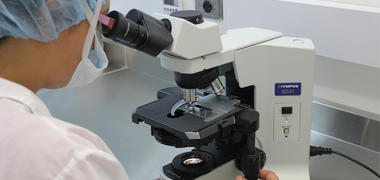
Finding ways to improve cervical screening

Women who have had the HPV vaccine could need fewer cervical screens in the future.
An assessment we fund reveals the best way for the jab and the updated cervical screening programme to work together after the jab is introduced in England in 2019.
The results show that just 3 screens throughout a woman's life would offer the same benefit as the current 12 offered in England.
This could free up vital NHS resources so they can be used where they're needed most, while still protecting women against cervical cancer.
Tracking lung cancer evolution to improve treatment
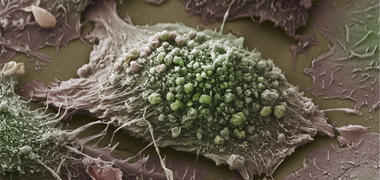
LRI EM Unit
Tracking lung cancer evolution to improve treatment

LRI EM Unit
Our research dramatically improves understanding of lung cancer genetics.
Results from our pioneering TRACERx study, which is documenting the evolution of lung cancer, shows that certain genetic changes in tumour DNA could predict the outlook for some patients. And tracking genetic 'signatures' in the blood could give early warning that the cancer will return after treatment.
In the future, this could help doctors stay one step ahead of the disease, and make treatment more personal.
2016
Opening the doors of The Francis Crick Institute

Opening the doors of The Francis Crick Institute

To examine the fundamental questions about how illnesses develop, we help fund the Francis Crick Institute.
The biggest biomedical research institute in Europe opens its doors to scientists for the 1st time.
Its scientists will find new ways to treat conditions such as cancer, heart disease, stroke, infections and diseases of the brain.
Getting radiotherapy the NHS funding it needs
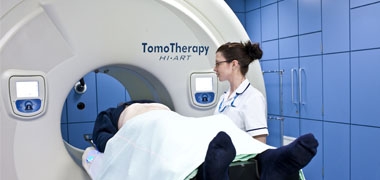
Getting radiotherapy the NHS funding it needs

More patients in England and Scotland will now get access to radiotherapy.
Our campaigning leads to NHS England investing £130 million in radiotherapy machines and a £50 million investment in Scotland.
Plain packaging: leading the UK to a smoke-free future

Plain packaging: leading the UK to a smoke-free future

Standardised cigarette packaging rolls out across the UK thanks to our campaign.
This is a huge step in reducing the uptake of smoking and helping smokers quit.
New treatment possibilities for oesophageal cancer

People with oesophageal cancer could get treatments tailored to their tumour in the future.
Our research shows that we can split oesophageal cancer into 3 distinct types.
This study could pave the way for the development of drugs that target each cancer’s weaknesses, leading to new ways to tackle the disease.
Towards fewer radiotherapy sessions for some prostate cancers
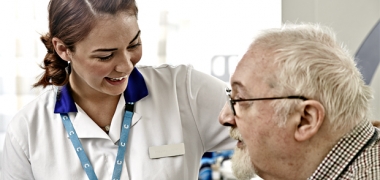
Towards fewer radiotherapy sessions for some prostate cancers

Men with prostate cancer could now avoid extra hospital trips, thanks to our large clinical trial in radiotherapy.
The CHHIP study looked at giving fewer, stronger doses of a more precise radiotherapy called IMRT.
Results reveal that the shorter, more precise course of IMRT is as safe and effective as conventional radiotherapy. It could also potentially reduce side effects.
Stepping towards a blood test to track ovarian cancer
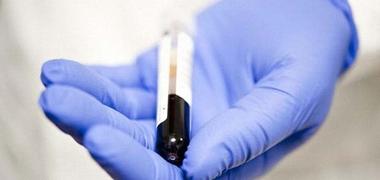
Our scientists hunt for a new way to monitor ovarian cancer.
The research shows that measuring levels of a faulty version of a gene called p53 in the blood could signal whether treatment is working.
In the future, this could help guide doctors so that patients get the right treatment at the right time.
Shining light on medulloblastoma biology

Reytan/Wikimedia Commons
We make progress in understanding why some types of medulloblastoma respond better to treatment than others.
Our research discovers that some medulloblastomas have leaky blood vessels that could help drugs reach the tumour more easily. This could help explain why children with a certain type of medulloblastoma tend to do well after chemotherapy, while others have a worse outlook.
In the future, this could help researchers tackle hard-to-treat medulloblastomas by making them more sensitive to chemotherapy.
2015
Launching the ambitious Grand Challenge

Launching the ambitious Grand Challenge

We launch Cancer Grand Challenges, the most ambitious cancer grants in the world.
The aim is to bring international teams together to solve the greatest barriers standing in the way of beating cancer, with a series of £20 million research grants for the taking.
Linking aspirin and lower bowel cancer risk

Linking aspirin and lower bowel cancer risk

Doctors now have new information about the benefits of aspirin for people with Lynch syndrome, which increases bowel cancer risk.
To add to our earlier findings from 2011, we run a follow up of one of our CAPP trials.
The trial discovers that aspirin can more than halve the risk of bowel cancer in obese people with Lynch syndrome.
Towards personalised pancreatic cancer treatment
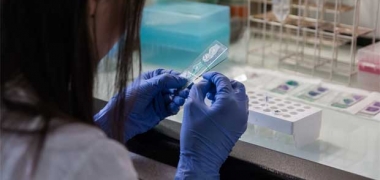
Towards personalised pancreatic cancer treatment

Paving the way for tailored oesophageal cancer treatment

Paving the way for tailored oesophageal cancer treatment

Oesophageal cancer patients could now get treatments that are better tailored to their disease.
Our scientists show that certain drugs are less likely to work when the tumour has lots of genetic mistakes.
They also found that the more mistakes a tumour contains, the more aggressive it's likely to be.
Developing a new way to diagnose Barrett's oesophagus
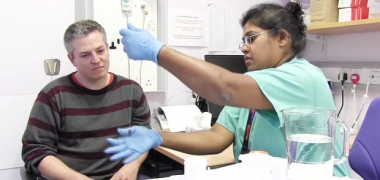
Developing a new way to diagnose Barrett's oesophagus

Discovering 5 distinct types of prostate cancer

LRI EM Unit
Discovering 5 distinct types of prostate cancer

LRI EM Unit
Setting the gold standard for breast cancer radiotherapy

Setting the gold standard for breast cancer radiotherapy

The gold standard for treating women with early-stage breast cancer is now set using advanced radiotherapy techniques.
We support a large clinical trial, called IMPORT-HIGH, to make this possible.
An international trial to find new combination treatments

An international trial to find new combination treatments

We launch an international clinical trial to improve treatments for neuroblastoma.
The BEACON trial is looking at the best combinations of drugs for children and young people whose cancer has returned after treatment.
This could lead to a gold standard of care for patients across the globe.
Cancer Research UK Kids & Teens is born
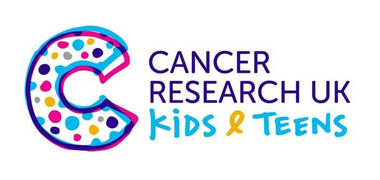
Cancer Research UK Kids & Teens is born

To raise funds for research into cancers that affect children and young people, we launch Cancer Research UK Kids & Teens.
This campaign is dedicated to finding new, better and kinder treatments for these patients.
Through research and clinical trials, Cancer Research UK Kids & Teens will help more children and young adults survive their disease, with fewer side effects from their treatment.
Joining forces to Cross Cancer Out

Joining forces to Cross Cancer Out

We rally supporters and MPs to make sure cancer is at the top of the political agenda.
More than 16,500 supporters joined our Cross Cancer Out campaign, ahead of the General Election.
One-third of MPs elected to Parliament supported the campaign to improve early diagnosis and ensure that patients can access the best treatments
2014
Opening new treatment possibilities for kidney cancer

Opening new treatment possibilities for kidney cancer

Our research highlights new leads for targeted treatment. It identifies core genetic faults that trigger early stages of kidney cancer development.
The work shows how kidney cancer is made up of an evolving patchwork of genetically different cells.
This helps to explain why advanced cancer can be hard to treat.
Sparing patients invasive tests through innovative imaging
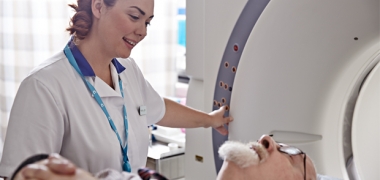
Sparing patients invasive tests through innovative imaging

1st trial of a new treatment for neuroblastoma
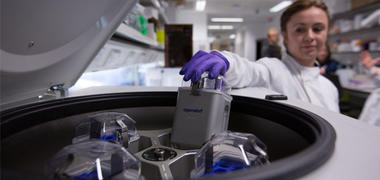
Imperial Science Imagery
1st trial of a new treatment for neuroblastoma

Imperial Science Imagery
Launching a revolutionary trial for lung cancer

Imperial Science Imagery
Launching a revolutionary trial for lung cancer

Imperial Science Imagery
We launch a pioneering clinical trial for people with advanced lung cancer.
The National Lung Matrix trial seeks to make treatment for the disease more personal.
By looking at the genetic changes in a patient's tumour, researchers will identify who is more likely to benefit from certain drugs.
From 2 in 4 to 3 in 4: Our new strategy to beat cancer sooner

From 2 in 4 to 3 in 4: Our new strategy to beat cancer sooner

We launch our ambitious new strategy to beat cancer sooner.
Since the 1970s cancer survival has doubled, from just 1 in 4 people surviving their disease for a decade or more to 2 in 4. Our new strategy wants that figure to rise to 3 in 4 by 2034.
As part of our efforts to save more lives, we prioritise 4 hard-to-treat cancers: pancreatic, lung, oesophageal and brain tumours, where survival remains stubbornly low.
This leads to us doubling our annual spend on these complex diseases over the next few years.
2013
Highlighting ways to tailor oesophageal cancer treatment

Highlighting ways to tailor oesophageal cancer treatment

Boosting survival for advanced oesophageal cancer

Boosting survival for advanced oesophageal cancer

Saving even more lives through cervical screening
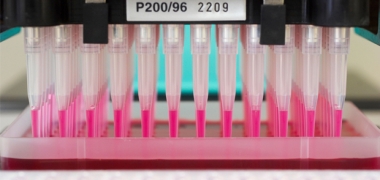
Saving even more lives through cervical screening

Our research shows a way to save even more lives through the cervical screening programme, by switching the order of tests carried out.
This change is now being introduced across the UK.
Revealing new treatment targets for follicular lymphoma

Revealing new treatment targets for follicular lymphoma

Our scientists uncover potential new targets for follicular lymphoma treatment.
They use genetic profiling to show how it develops and progresses from a manageable disease into an aggressive cancer.
This work could lead to the development of ways to prevent this process from happening in the future.
Treatment trials to improve myeloma survival
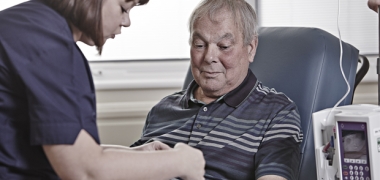
Treatment trials to improve myeloma survival

People with myeloma could now be given precious extra time.
A large trial we helped support through the ECMC network shows that new treatment combinations boost survival.
Discovering a better way to give radiotherapy
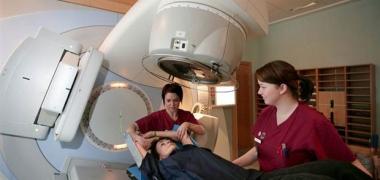
Discovering a better way to give radiotherapy

Women with breast cancer now need fewer hospital trips for treatment.
The benefits of giving fewer, higher doses of radiotherapy treatment over a shorter time are now known. This is in part thanks to our clinical trials.
This shorter radiotherapy is found to be as effective at treating early-stage breast cancer as the longer course.
This makes a significant impact on radiotherapy practice not only in the UK but also worldwide.
Cutting breast cancer cases with the drug anastrozole
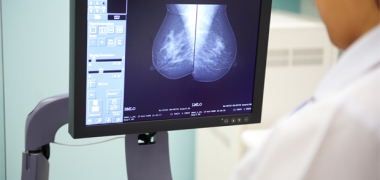
2012
New insight into the causes of oesophageal cancer
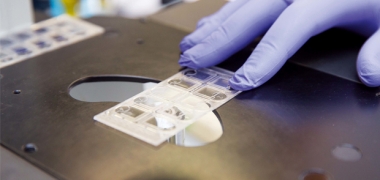
New insight into the causes of oesophageal cancer

Our scientists pinpoint a faulty gene that raises the risk of developing oesophageal cancer.
This opens up new research avenues for treating and diagnosing the disease better.
It also boosts scientists’ understanding of the underlying causes of inherited and more common forms of the disease.
In the future, this discovery could lead to new ways to make treatments more personal.
Highlighting a way to stop advanced bladder cancer returning
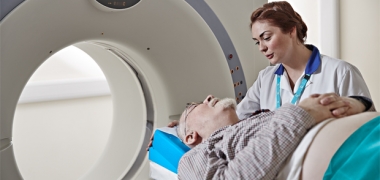
Highlighting a way to stop advanced bladder cancer returning

Some people with advanced bladder cancer could now have more treatment options.
A major clinical trial we fund shows that adding chemotherapy to radiotherapy reduces the likelihood that the disease will return.
This combination could provide an alternative to surgery for some people, such as those who are too weak to undergo an operation.
Highlighting the links between obesity and kidney cancer

Highlighting the links between obesity and kidney cancer

We publish figures on obesity and kidney cancer risk, helping people make informed decisions about their health.
The figures show that obesity may be behind the rising rates of kidney cancer in the UK.
This highlights the health risks of being overweight or obese, and the need for maintaining a healthy weight.
Combination chemotherapy transforms leukaemia survival

Combination chemotherapy transforms leukaemia survival

Our scientists transform treatment for acute myeloid leukaemia.
They lead clinical trials testing a combination of chemotherapy drugs.
Today, the combination of cytarabine (Ara-C) and daunorubicin is still used across the world.
Helping women make informed choices about breast screening

Helping women make informed choices about breast screening

Women across the country now have the help they need to decide for themselves whether to go for breast cancer screening.
We help inform women by delivering the most important review of the UK breast screening programme to date.
2011
Cutting bowel cancer cases with aspirin

Cutting bowel cancer cases with aspirin

We show that aspirin can reduce bowel cancer cases in those with an inherited condition, called Lynch syndrome.
Results from our ongoing CAPP trials find that this over-the-counter drug cuts the risk of bowel cancer in this group who are at high risk of the disease.
Among those in the trial who took aspirin for at least 2 years, 10 people developed bowel cancer compared with 23 who took a dummy pill – a 63% drop in cases.
Shaping targeted treatments in advanced bowel cancer
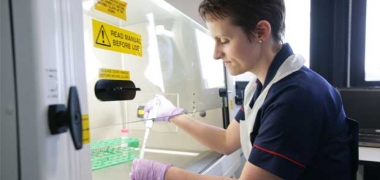
Shaping targeted treatments in advanced bowel cancer

We help shape treatment for some people with bowel cancer by supporting a large clinical trial on a new targeted treatment.
This work encourages further studies on the subject.
As a result, people with advanced disease whose cancer lacks a particular genetic fault can now benefit from a drug called cetuximab (Erbitux)
A gene test to reduce unnecessary prostate cancer treatment

A gene test to reduce unnecessary prostate cancer treatment

Some men with prostate cancer can now benefit from avoiding treatments they don't need.
Our scientists develop a genetic test that could predict how aggressive a patient's prostate cancer is likely to be.
The test distinguishes those that need treatment from those with slow-growing tumours that can instead be monitored.
Such an approach could help reduce long-term side effects from unnecessary treatment.
Unpicking kidney cancer genetics

Unpicking kidney cancer genetics

Finding the 1st faulty genes linked with myeloma risk
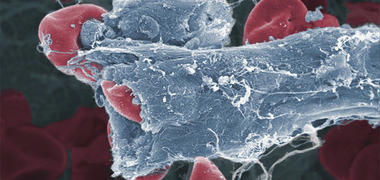
Vascular Development Laboratory & EM Unit
Finding the 1st faulty genes linked with myeloma risk

Vascular Development Laboratory & EM Unit
Finding genetic faults that raise ovarian cancer risk
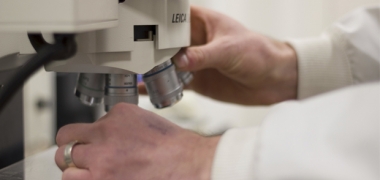
Finding genetic faults that raise ovarian cancer risk

More women could now benefit from targeted drugs called PARP inhibitors.
Our research shows that inherited faults in a gene called RAD51D can lead to ovarian cancer. The study also shows that PARP inhibitors can target cells lacking this gene in the lab.
Our scientists played an important role in the development of this class of drugs, which target genetic weaknesses in cancer cells.
Collaborating internationally for rare cancers
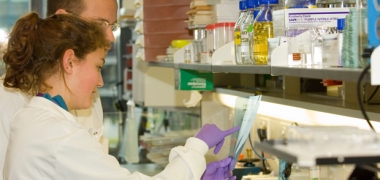
Collaborating internationally for rare cancers

We help set up the International Rare Cancers Initiative.
The initiative aims to develop clinical trials to find new treatments for patients with rare cancers.
The first trials opened internationally in 2014 - 2015.
Discovering a faulty gene in womb cancer
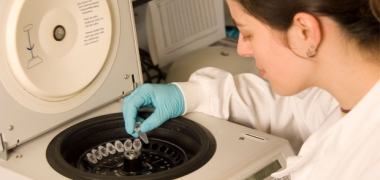
Discovering a faulty gene in womb cancer

Discovering the number of preventable cancers

Discovering the number of preventable cancers

Research we fund shows that more than 4 in 10 cancers are preventable.
This research helps people to make decisions about their lifestyle that will reduce their risk of developing cancer.
2000s
Pinpointing faulty genes linked to childhood kidney cancer (2010)

Pinpointing faulty genes linked to childhood kidney cancer (2010)

Our research could lead to the development of more personalised treatments for Wilms’ tumour.
Our scientists track down 2 faulty genes linked to the disease. This could help identify those with harder to treat disease who need more intense treatment.
A campaign for lung cancer awareness and earlier diagnosis (2010)

A campaign for lung cancer awareness and earlier diagnosis (2010)

The Be Clear on Cancer Campaign that we support launches, to help boost awareness and early diagnosis of lung cancer.
Results of the 1st national campaign in 2012 show around 400 more people had their cancers diagnosed at an earlier stage.
Also, around 300 extra patients were able to have surgery. This is the treatment that offers the best chance of beating the disease.
Transforming the outlook for leukaemia that’s come back (2010)

Combining radiotherapy and chemotherapy for anal cancer (2010)
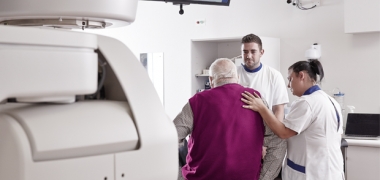
Combining radiotherapy and chemotherapy for anal cancer (2010)

Deaths from anal cancer can now be greatly reduced thanks to a new treatment combination.
A large clinical trial we helped to fund shows that combining chemotherapy and radiotherapy increases the number of people who survive the disease.
Those who received this treatment on the trial were a third less likely to die from anal cancer.
This confirms that this treatment should be the standard of care for this disease worldwide.
Protecting young people from the harms of sunbeds (2010)

Protecting young people from the harms of sunbeds (2010)

To stop children and young people from risking their health, we successfully campaign to get the Sunbed Regulation Act passed.
This helps to prevent a future epidemic of skin cancer by stopping under-18s in England and Wales from using sunbeds.
Trialling a new targeted cancer drug for prostate cancer (2009)
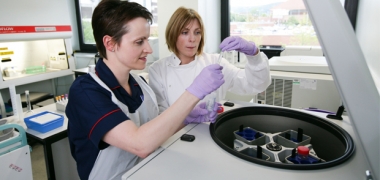
Trialling a new targeted cancer drug for prostate cancer (2009)

We launch a trial of a new type of targeted drug called a PARP inhibitor in patients with faulty BRCA genes.
The study could provide a new treatment option for some men with prostate cancer in the future.
Our research and trials underpinned and discovery and development of these drugs.
Reducing unnecessary treatments for neuroblastoma (2009)
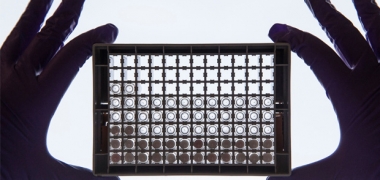
Reducing unnecessary treatments for neuroblastoma (2009)

Some children with neuroblastoma are saved from treatments they don’t need.
Our research shows that testing for a faulty version of a gene called MYCN helps doctors identify patients with less aggressive forms of the disease.
Boosting neuroblastoma survival through clinical trials (2008)

Boosting neuroblastoma survival through clinical trials (2008)

Our research shows how more frequent, higher doses of chemotherapy improves survival in some patients by two-thirds.
These trials are today improving treatments for young children with neuroblastoma in the UK and Europe.
Improving lymphoma survival through global trials (2008)

Running the 1st in-human trial of rucaparib (2008)
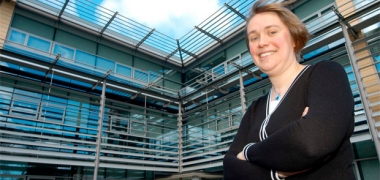
Running the 1st in-human trial of rucaparib (2008)

Our scientists carry out the 1st in-human trial of rucaparib (Rubraca), at our Centre for Drug Development.
Their work underpinned the development of PARP inhibitors, and rucaparib was the first of this type of drug to reach clinical trials.
Rucaparib was later approved by the FDA as a treatment for certain patients with advanced ovarian cancer.
Solidifying evidence over the benefits of the Pill (2008)

Solidifying evidence over the benefits of the Pill (2008)

Our work leads to a greater understanding of the Pill and associated cancer risks.
Our scientists strengthen the evidence that it can protect against ovarian cancer.
Their analysis proves beyond doubt that long-term use of the oral contraceptive can reduce the risk of the disease.
Boosting cure rates for Burkitt's lymphoma (2008)

Boosting cure rates for Burkitt's lymphoma (2008)

Patients could now get the treatment that’s best for them, after we fund the largest ever trial of intensive chemotherapy for Burkitt’s lymphoma.
The trial shows intensive therapy can achieve high cure rates in this disease.
Also, that patients with other types of lymphomas benefit from less intensive treatments.
Finding evidence for new bladder cancer treatment options (2008)
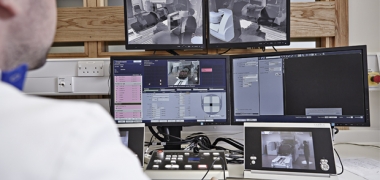
Finding kinder treatments for children with ependymoma (2007)

Finding kinder treatments for children with ependymoma (2007)

An effective treatment with fewer long-term side effects becomes available for children with a type of brain tumour called ependymoma.
A clinical trial we fund together with the Brain Tumour Charity shows the benefits of using chemotherapy instead of radiotherapy.
Chemotherapy boosts survival in early stage bowel cancer (2007)

Chemotherapy boosts survival in early stage bowel cancer (2007)

Our QUASAR study helps to save lives by showing the benefits of chemotherapy in patients whose bowel cancer is less advanced.
The trial is one of the largest of its kind, and changes the way doctors treat bowel cancer.
It shows that adding chemotherapy drugs after surgery can help boost survival in people with earlier stages of the disease.
Identifying genetic risk factors for childhood cancer(2007)

Imperial Science Imagery
Identifying genetic risk factors for childhood cancer(2007)

Imperial Science Imagery
We begin to unravel the genetics behind some childhood cancers.
Our research discovers that faults in a gene called PALB2 cause a type of Fanconi anaemia – an inherited condition that raises a child's risk of developing cancer.
This could help doctors better predict how the condition may progress in individual children, and to make their treatment more personal.
Identifying aggressive disease to personalise treatment (2007)
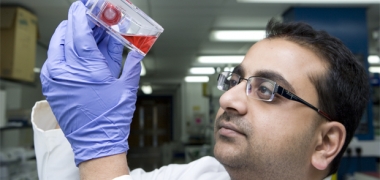
Identifying aggressive disease to personalise treatment (2007)

We highlight a way to diagnose prostate and bladder cancers more accurately, which could make treatment more personal.
Our research, published in 2004 and 2007, shows that a gene called E2F3 could flag cancers that need more urgent treatment.
This gene could serve as a marker for aggressive disease in both cancer types.
Identifying a link between HRT and ovarian cancer (2007)

Identifying a link between HRT and ovarian cancer (2007)

Women can now make informed decisions about taking hormone replacement therapy (HRT).
The Million Women Study, that we support, highlights the risks of taking HRT, including increased risk of ovarian and womb cancers.
The risks highlighted by this study mean that women are now advised to take HRT only when there is a clear medical need, and for no longer than necessary.
Campaigning to make life-extending drugs available (2007)

Campaigning to make life-extending drugs available (2007)

People with mesothelioma now have access to the life-extending drug pemetrexed (Alimta).
Our successful campaigning efforts mean it is now available on the NHS.
Campaigning successfully for UK smoke-free legislation (2007)

Campaigning successfully for UK smoke-free legislation (2007)

We make huge progress in helping to prevent 1000s of deaths from second-hand smoke.
Thanks to the hard work of our Ambassadors influencing MPs and councillors, smoke-free legislation rolls out across the UK.
Making Wilms' tumour treatment kinder for children (2006)

Making Wilms' tumour treatment kinder for children (2006)

Children with Wilms’ tumour can now have less treatment and avoid long-term side effects.
Our decade-long trial shows the benefits of giving chemotherapy before surgery.
This changes the way that children with this kidney cancer are treated now in the UK.
Finding the best combination of hepatoblastoma treatment (2006)

Finding the best combination of hepatoblastoma treatment (2006)

Survival for children with hepatoblastoma is dramatically improved, thanks to an important trial we collaborated on.
Hepatoblastoma is the most common childhood liver cancer.
The research helped to define the best combination and sequence of surgery and chemotherapy.
Discovering a new family of targeted drugs (2005)

Discovering a new family of targeted drugs (2005)

Our scientists discover a way to exploit genetic weaknesses in cancer cells that prevent them from fixing their DNA.
This brings about a new family of drugs, called PARP inhibitors, which target faults in the BRCA1 and BRCA2 genes. These genes can substantially raise the risk of ovarian and breast cancers, among others.
One of these, olaparib (Lynparza), was later approved in 2015 by NICE for certain ovarian cancer patients with faulty BRCA genes.
Boosting pancreatic cancer survival with extra chemotherapy (2005)
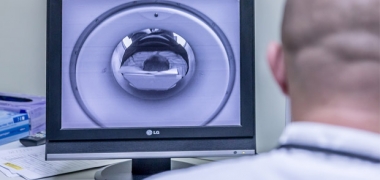
Boosting pancreatic cancer survival with extra chemotherapy (2005)

People with pancreatic cancer get precious extra time after our GEMCAP trial finds that 2 chemotherapy drugs are better than 1.
Our scientists show that the combination therapy could significantly boost survival.
This leads to the treatment becoming the new standard of care for patients with this disease.
Giving pancreatic cancer patients new hope (2004)

Giving pancreatic cancer patients new hope (2004)

Proving the benefits of high-dose chemotherapy in myeloma (2003)
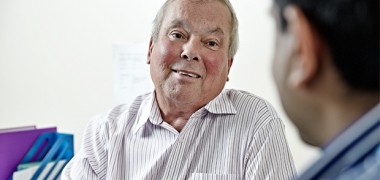
Proving the benefits of high-dose chemotherapy in myeloma (2003)

Our research helps improve survival for multiple myeloma.
Our work shows that high-dose chemotherapy is more effective than standard treatment.
This intense course of chemotherapy had a controversial past. But we proved in a large-scale trial that it was more than 5 times as effective as lower doses in treating this disease.
Finding the 'missing link' between some inherited cancers (2003)
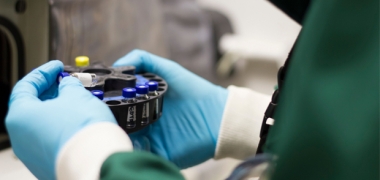
Finding the 'missing link' between some inherited cancers (2003)

We make a discovery which is key to understanding how and why some ovarian and breast cancers develop. One that could pave the way for new treatments.
Our scientists uncover the ‘missing link’ between forms of these cancers that can be passed through families and those that aren’t. It's all down to a gene called EMSY.
Exposing the links between HRT and breast cancer (2003)

Exposing the links between HRT and breast cancer (2003)

Women all over the world can now get better information to help them make informed decisions about whether to take hormone replacement therapy (HRT) and for how long.
Our scientists are some of the 1st to link HRT to an increased risk of breast cancer.
A kinder treatment for children with medulloblastoma (2003)

A kinder treatment for children with medulloblastoma (2003)

Quality of life improves for children living with a type of brain tumour called medulloblastoma.
Patients have another treatment option after we show the benefit of adding chemotherapy to radiotherapy.
Funding EPIC research into diet and cancer risk (2003)

Funding EPIC research into diet and cancer risk (2003)

People can now take steps to lower their risk of bowel cancer, thanks to our research into diet and cancer.
As part of the EPIC study which we help to fund, we show that a high fibre diet decreases the risk of bowel cancer.
In 2005, our further findings show that a diet high in red and processed meat increases the risk of bowel cancer. This helps to inform the International Agency for Research on Cancer’s (IARC) classification of red and processed meats as carcinogens.
Cancer Research UK is born (2002)

Cancer Research UK is born (2002)

Imperial Cancer Research Fund and Cancer Research Campaign now merge to become Cancer Research UK.
It becomes the world's leading charity dedicated to beating cancer through research.
Treatment discovery for rare gut cancer (2002)
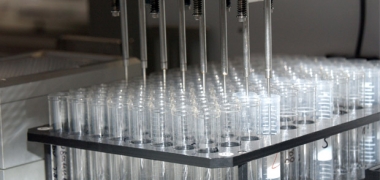
Treatment discovery for rare gut cancer (2002)

Finding a common genetic fault in melanoma (2002)
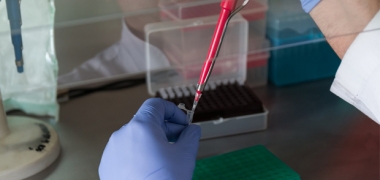
Finding a common genetic fault in melanoma (2002)

Our pioneering study reveals how a gene called BRAF is faulty in a wide range of cancers.
This includes more than ½ of all cases of the most dangerous type of skin cancer. Malignant melanoma.
It’s the 1st success for the ambitious Cancer Genome Project. The project aims to pinpoint all of the genes that can go wrong in cancer cells.
Boosting mesothelioma survival (2002)

Boosting mesothelioma survival (2002)

Our trial finds that a new chemotherapy combination can almost double life expectancy in patients with mesothelioma.
Results show the effects of adding pemetrexed to carboplatin in patients with this hard-to-treat cancer.
It provides the 1st convincing clinical evidence of the benefits of this drug combination.
Making a Nobel Prize-winning discovery (2001)
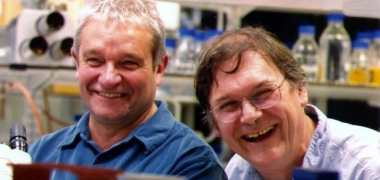
Making a Nobel Prize-winning discovery (2001)

Our researchers receive a share of the Nobel Prize for Medicine for a crucial discovery.
In the 1970s and '80s Sir Paul Nurse and Sir Tim Hunt discovered the 'engine' that drives all cells, including cancer cells, to grow and multiply.
Their work paves the way for future cancer treatments.
Trialing highly precise radiotherapy for prostate cancer (2000)
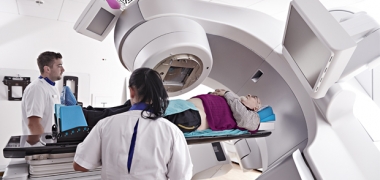
Trialing highly precise radiotherapy for prostate cancer (2000)

A highly precise form of radiotherapy, IMRT could help reduce side effects in patients.
We're the first to open a trial for this type of radiotherapy for prostate cancer in the UK.
Helping boost lymphoma survival through targeted treatment (2000)

Ib intaspharma/Wikimedia Commons
The targeted drug rituximab (Mabthera) has transformed survival for some types of lymphoma.
We support early clinical trials of this treatment.
1990s
Providing the rationale for the HPV vaccination programme (1999)
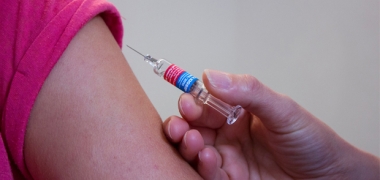
Providing the rationale for the HPV vaccination programme (1999)

The stage is set for today’s HPV vaccination programme, after we show that the virus is a necessary cause of cervical cancer worldwide.
This work overturns previous studies that had underestimated the link. It finds HPV in almost all cervical cancer samples taken from 22 countries.
Assessing cervical screening samples more accurately (1998)

Assessing cervical screening samples more accurately (1998)

Our scientists pioneer a new technique that could revolutionise the way doctors detect cervical and other cancers in the future.
They develop a test that helps pick up early changes in cervical cells that could lead to cancer.
This test is now used in several countries across the world to help pathologists analyse cervical screening samples.
Leading the early development of a new chemotherapy drug (1998)

Leading the early development of a new chemotherapy drug (1998)

We head one of the earliest trials of chemotherapy drug pemetrexed (Alimta). The trial determines the maximum amount that can be safely given to patients.
This important work helps shape larger clinical trials that develop this new treatment further.
In 2007, the drug was then approved by NICE for the treatment of some lung cancer patients.
Today pemetrexed treats some people with lung cancer and mesothelioma.
Paving the way for less invasive diagnostic tests (1998)

Paving the way for less invasive diagnostic tests (1998)

A new technique could spare patients from uncomfortable diagnostic tests in the future.
Our scientists' pioneering work has led to the development of urine tests that could spot bladder cancer earlier.
The new technology is being tested in large-scale clinical trials today.
Improving Ewing's sarcoma survival with clinical trials (1997)
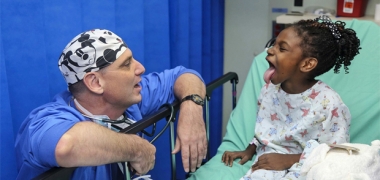
Improving Ewing's sarcoma survival with clinical trials (1997)

There are dramatic improvements in survival for children with the bone cancer Ewing’s sarcoma.
This is after we carry out the 1st UK clinical trial for the disease. The study backs up the importance of using chemotherapy and radiotherapy to treat this type of cancer.
Uncovering cancer cells' 'immortality molecule' (1997)
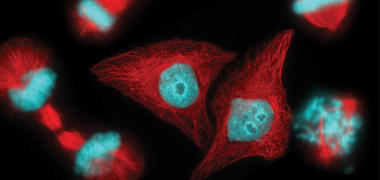
Cell Division and Aneuploidy Laboratory, LRI
Uncovering cancer cells' 'immortality molecule' (1997)

Cell Division and Aneuploidy Laboratory, LRI
We highlight a potential new way to cut the lifeline of cancer cells.
Our scientists pinpoint a gene that makes the so-called ‘immortality molecule’ telomerase.
This gene is overactive in 80% of cancers and lets cells multiply continuously. This is why our scientists are now looking at ways to switch it off in cancer.
Finding a way to make a new drug safer and kinder (1996)
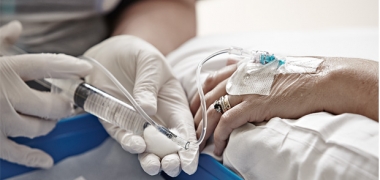
Finding a way to make a new drug safer and kinder (1996)

Our scientists find a way to reduce the unpredictability of the chemotherapy drug etoposide (Eposin). They do this by monitoring its concentration in the blood.
During its early development, treatment using this drug caused unpredictable side effects. This was because of the way it travelled around patients’ bodies.
Etoposide is now used to treat several cancers, including some lung and testicular cancer patients.
Finding the cause of Kaposi's sarcoma (1996)
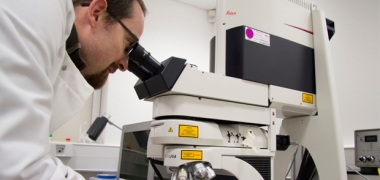
Developing a new hormone treatment for prostate cancer (1995)

Developing a new hormone treatment for prostate cancer (1995)

We play a crucial role in bringing about an effective new hormone treatment for prostate cancer.
Our scientists develop a molecule in the lab that later becomes the drug abiraterone.
We then help support several clinical trials of this new drug, including the first in-man studies in 2008.
The trials prove how abiraterone could extend the lives of men with advanced disease who had run out of treatment options. This leads to NICE approving the drug for some people in 2012.
Discovering the BRCA1 and BRCA2 genes (1994)

Discovering the BRCA1 and BRCA2 genes (1994)

Women can now take steps to reduce their risk of breast and ovarian cancer.
We make major breakthroughs in understanding the genetic risk factors of these diseases.
An international collaboration headed by our scientists helps pinpoint the BRCA1 gene. When faulty, this gene raises the risk of breast and ovarian cancer, as well as other cancer types.
A year later, scientists track down the BRCA2 gene, which is also responsible for some inherited cancers.
Race for Life begins (1994)

Race for Life begins (1994)

Our flagship fundraising event, Race for Life, kicks off for the first time.
Since the first event in London, more than 9 million women have united each year to run, walk, jog or hike to raise a total of over £820 million to beat cancer sooner.
Building evidence to stop breast cancer returning (1994)

Building evidence to stop breast cancer returning (1994)

Our researchers provide key evidence on the benefits of radiotherapy after surgery in breast cancer.
This form of treatment is shown to help prevent early breast cancers from coming back.
Tracking down faulty genes in synovial sarcoma (1994)
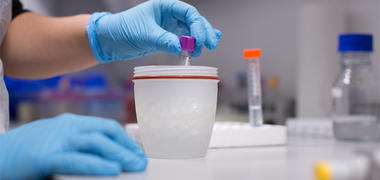
Imperial Science Imagery
Tracking down faulty genes in synovial sarcoma (1994)

Imperial Science Imagery
Doctors can more accurately diagnose a type of soft tissue sarcoma, thanks in part to our research.
Our scientists identify 2 genes that are often faulty in people with synovial sarcoma, which most commonly affects children and young people.
These genes are changed in a specific way that helps doctors diagnose this disease.
Narrowing the search for faulty genes in inherited cancer (1993)

Narrowing the search for faulty genes in inherited cancer (1993)

The understanding of inherited breast and ovarian cancers strengthens.
Our scientists pinpoint a stretch of DNA that contains a faulty gene, guiding further work to track the gene down.
The gene is responsible for some cases that run in families.
Sparing lymphoma patients chemotherapy with antibiotics (1993)

Sparing lymphoma patients chemotherapy with antibiotics (1993)

Our research spares patients with a rare type of stomach lymphoma from chemotherapy or surgery.
Our scientists show that using antibiotics to target infection with a bacterium called H. pylori can treat the disease at an early stage.
Laying the foundations for HPV vaccine development (1993)

Jan Christian/Wikimedia Commons
Our scientists lay the groundwork for the development of HPV vaccines, with their pioneering work on papillomaviruses.
Their work focuses on the types of the virus that can cause cervical cancer.
Today’s HPV vaccination programme could cut the number of cases of cervical cancer and prevent 1000s of deaths.
Revealing a gene's surprising new role fuels research (1992)

Revealing a gene's surprising new role fuels research (1992)

Our scientists discover a new and unexpected role of Myc, that leads to new research into blocking it in cancer treatment.
The gene Myc is commonly faulty in cancer, causing cells to grow out of control.
But our scientists find that it also has another important role. It causes cells to ‘commit suicide’ in some situations.
This discovery spurs our researchers and others to investigate ways to block Myc in cancer treatment.
Bringing the drug temozolomide from lab to patient (1992)
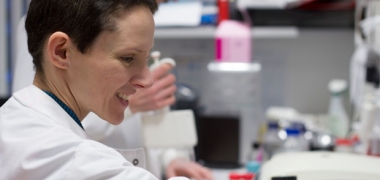
Bringing the drug temozolomide from lab to patient (1992)

Cancer Research UK carry out the 1st clinical trials of a drug we helped to develop, temozolomide.
The trials show how the drug could help some patients with brain tumours. The work also lays the foundations for further studies.
NICE then approves the drug in 2001 for patients whose disease returned after standard treatment.
It is also approved as an up-front treatment for some newly-diagnosed patients in 2007.
Discovering the 1st new bowel cancer drug for 35 years (1991)
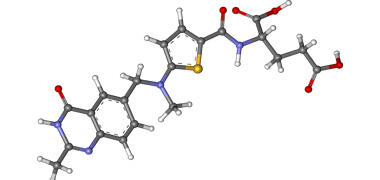
Marina Vladivostok/Wikimedia Commons
Early studies by our scientists help in the development of the bowel cancer drug raltitrexed (Tomudex). This is the 1st new drug for bowel cancer for 35 years.
We discover important features of the drug in mice, including how it travels around the body. This starts its progression into clinical trials in people, which we also fund.
Today, raltitrexed is still used to treat bowel cancer that has spread.
Discovering a kinder treatment for advanced skin cancer (1991)
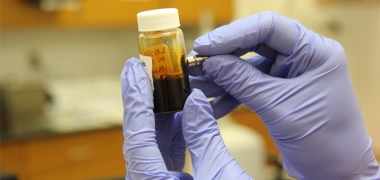
Discovering a kinder treatment for advanced skin cancer (1991)

Some skin cancer patients are saved from disfiguring surgery after our early research paves the way for a new treatment.
In the 1990s our scientists lay the groundwork for the development of a drug that's used to treat non-melanoma skin cancer. Vismodegib (Everidge).
This is a much-needed treatment option for patients whose cancer has spread.
Launching a quest to uncover links between diet & cancer (1990)

Launching a quest to uncover links between diet & cancer (1990)

EPIC – the largest study to date on the role of diet in cancer risk – is part-funded by Cancer Research UK.
The study paves the way for discoveries that today are helping people reduce their risk of cancer.
Bringing about a revolution in stem cell transplants (1990)
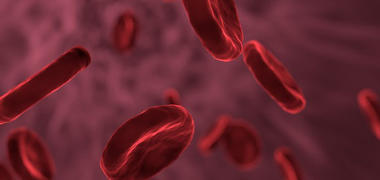
Bringing about a revolution in stem cell transplants (1990)

We help revolutionise stem cell transplants. This is a life-saving treatment for patients with blood cancers.
By making it kinder for donors, this research helps increase the number of people willing to donate stem cells, keeping more cancer patients alive.
Today, this remains the most common way that stem cell transplants are carried out worldwide.
1980s
Launching practice-changing trials for pancreatic cancer (1989)
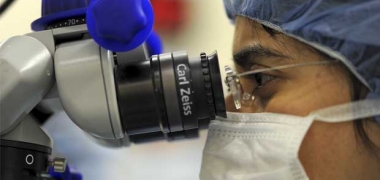
Launching practice-changing trials for pancreatic cancer (1989)

We fund a ground-breaking study looking into new options for people with pancreatic cancer.
The ESPAC1 trial is the biggest study of its kind.
It leads to a series of practice-changing trials that transformed treatment for people with this hard-to-treat disease.
Helping patients get the right dose of chemotherapy (1989)
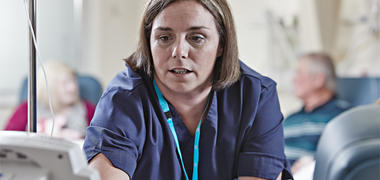
Helping patients get the right dose of chemotherapy (1989)

Patients can now be treated with the dose of carboplatin that is just right for them.
Our scientists develop the Calvert formula, a way of calculating the correct dose of the chemotherapy drug.
Enabling earlier retinoblastoma treatment boosts survival (1988)

Enabling earlier retinoblastoma treatment boosts survival (1988)

Almost every child with the eye cancer retinoblastoma is now cured, thanks in part to our work.
Our scientists develop a test for children with an inherited form of the disease, meaning they can receive treatment early.
Steps towards an important new chemotherapy, temozolomide (1987)

Steps towards an important new chemotherapy, temozolomide (1987)

Our scientists discover a core molecule that later becomes the important drug temozolomide (Temodal).
It is used worldwide today to treat people with the most common type of brain tumour, glioblastoma.
1000s of people have benefited from treatment with this drug since it was first approved by NICE in 2001.
Laying the groundwork for Herceptin, a new targeted drug (1987)
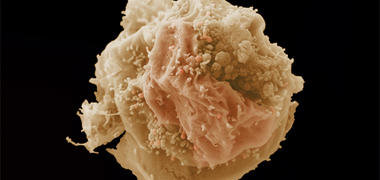
LRI EM department
Laying the groundwork for Herceptin, a new targeted drug (1987)

LRI EM department
One of our scientists makes a discovery that sets in motion the development of a new targeted drug for breast cancer, trastuzumab (Herceptin).
Dr Bill Gullick shows that the HER2 protein is found at unnaturally high levels in some breast cancer cells. This encourages research into blocking its action.
Tracking down APC, a faulty gene in bowel cancer (1987)
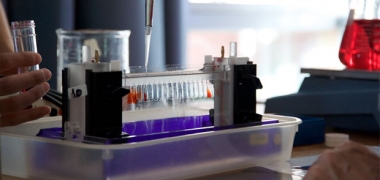
Tracking down APC, a faulty gene in bowel cancer (1987)

Our early work on cancer that runs in families opens up research into tracking down the genes responsible for the disease.
As a result, we discover the location of the important gene APC which, when faulty, raises the risk of bowel cancer.
Thanks to this work, doctors can now offer people who have a family history of bowel cancer genetic tests.
These tests look for faults in the gene, and help people make informed decisions about their health.
Gathering the evidence to support breast screening (1986)

Gathering the evidence to support breast screening (1986)

A new report led by one of our eminent surgeons sees the establishment of the national breast screening programme.
Sir Patrick Forrest chaired a committee of experts to assess the value of breast screening. The resulting report becomes the tipping point for the introduction of the programme.
Before this work Sir Forrest had led research into mammography in the 1960s, as a way to diagnose breast cancer earlier.
Bringing forward a new era of targeted cancer drugs (1984)
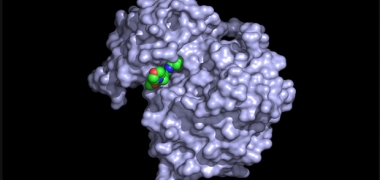
Bringing forward a new era of targeted cancer drugs (1984)

Our scientists carry out pioneering work that creates a whole new field of cancer research.
They show how a molecule called EGFR is involved in cancer development.
This discovery overturns widely held ideas on the causes of cancer.
It also accelerates the development of several targeted drugs used to treat patients today. These include erlotinib (Tarceva), gefitinib (Iressa) and afatinib (Giotrif).
A step towards a crucial new hormone therapy, anastrozole (1984)
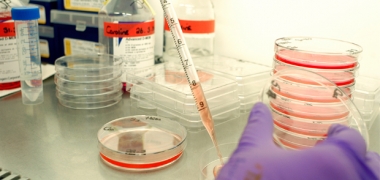
A step towards a crucial new hormone therapy, anastrozole (1984)

We complete the groundwork for the gold-standard of care for the many women who develop breast cancer.
We carry out some of the key early work on a group of hormone therapies known as ‘aromatase inhibitors’.
This lays the foundations for the development of one such drug, anastrozole (Arimidex).
Tracking down faults in the NRAS gene (1983)
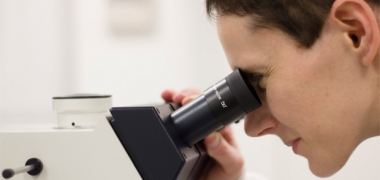
Tracking down faults in the NRAS gene (1983)

As a step towards new treatments, our scientists track down faults in a gene called NRAS. This gene can drive the development of melanoma, lung, bowel and pancreatic cancers.
Over the next decade, our researchers develop a broad understanding of how this and similar genes are involved in the growth of many cancers. Collectively these genes are known as RAS genes.
Scientists are now working on drugs that can alter its activity as a treatment for cancer.
Changing the landscape of cancer treatment with imatinib (1982)
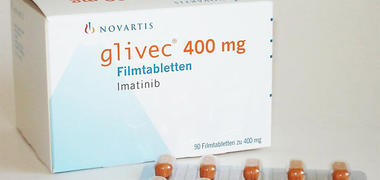
D. Meyer/Wikimedia Commons
The 1st genetically tailored drug to arrive on the scene, imatinib (Glivec), changes the landscape of cancer treatment.
This sets the stage for the development of many more targeted therapies that have helped transform the outlook for many patients.
Our fundamental research in the 1980s underpins imatinib’s development.
This helps to track down a genetic fault that fuels almost all cases of chronic myeloid leukaemia, which imatinib targets.
Bringing an important new chemotherapy onto the scene (1982)

Bringing an important new chemotherapy onto the scene (1982)

We discover and then develop the chemotherapy carboplatin (Paraplatin).
This platinum-based treatment is one of the most successful cancer drugs ever developed. It also has fewer side effects than its predecessor, cisplatin.
Today, carboplatin helps to successfully treat patients with ovarian, lung and womb cancer, as well as many children with cancer.
Making radiotherapy more precise (1980s)

Making radiotherapy more precise (1980s)

Cancer Research UK has a crucial early role in the development of IMRT – a highly targeted kind of radiotherapy.
Doctors can now give tumours a powerful dose of radiation while saving its healthy surroundings.
In 2007 we support the 1st trial of its use in breast cancer.
It's expected to become mainstream for certain cancers in the future.
1970s
Discovering a gene with a key role in preventing cancer (1979)
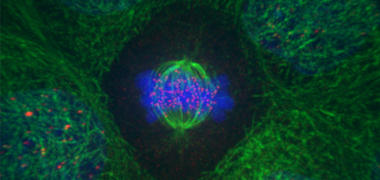
Steve Bagley & Helen Whalley/Cancer Research UK Manchester Institute
Discovering a gene with a key role in preventing cancer (1979)

Steve Bagley & Helen Whalley/Cancer Research UK Manchester Institute
Our scientists make a discovery which has deep significance for cancer treatment.
They uncover a molecule in the body, called p53, which has a central role in preventing cancer. It is faulty in the majority of cases of the disease.
As a result, scientists are now developing ways to target p53 in the tumours of patients.
Revolutionising Hodgkin lymphoma treatment (1978)

Revolutionising Hodgkin lymphoma treatment (1978)

Our scientists revolutionise the treatment of Hodgkin lymphoma.
They play a key role in the development of combination chemotherapy. This treatment dramatically boosts survival in people with the disease.
Thanks to further advances we make in improving treatment over the following decades, almost all people survive their disease today.
Protecting future generations from the dangers of asbestos (1978)

We help lay the foundations for new health and safety policies related to the building material, asbestos.
Our research documents the links between asbestos and the disease mesothelioma.
These new policies protect future generations from exposure to asbestos, saving lives from the disease.
Pioneering research into blood cancer biology (1977)
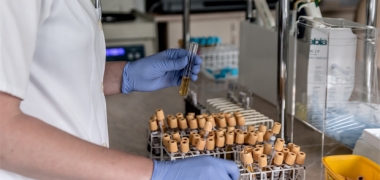
Pioneering research into blood cancer biology (1977)

Our early research into bone marrow stem cells leads to a wave of important discoveries for blood cancers.
This includes how stem cells replenish blood throughout life, and how blood cancers start.
This work underpins the development of better treatments for many types of cancer, such as those that help to rebuild patients' immune systems after chemotherapy or radiotherapy.
Linking x-rays during pregnancy and childhood leukaemia (1975)

Linking x-rays during pregnancy and childhood leukaemia (1975)

We find that children of women who were given frequent x-rays during pregnancy had an increased risk of developing the disease.
Our discovery reduces the number of children affected by leukaemia.
Because of this work, today’s doctors avoid giving x-rays to pregnant women when possible.
Pioneering a kinder treatment: breast-conserving surgery (1972)

Pioneering a kinder treatment: breast-conserving surgery (1972)

Countless women are saved from unnecessary surgery after we build the case for breast-conserving surgery.
A revolutionary idea at the time, it’s now done routinely for early breast cancer.
Introducing a new type of chemotherapy treatment (1972)

Introducing a new type of chemotherapy treatment (1972)

Our early research leads the way to a new chemotherapy drug called oxaliplatin (Eloxatin).
Oxaliplatin is a type of treatment called platinum-based chemotherapy. Our scientists' work on new molecules in the lab underpins the development of this family of drugs.
Today, oxaliplatin is used to treat several cancer types, such as bowel and oesophageal cancers, often in combination with other drugs.
Developing the first ever platinum-based chemotherapy drug (1972)
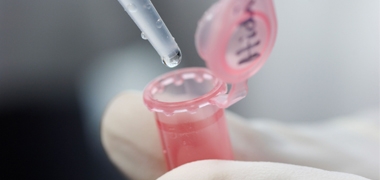
Developing the first ever platinum-based chemotherapy drug (1972)

Our scientists save lives by showing the strong anti-cancer activity of the drug cisplatin (Platinol).
This prompts further research and clinical trials, funded by us, that prove the benefits of this chemotherapy drug.
Today this drug treats several cancers and almost all men with testicular cancer now survive because of it.
Cancer Research Campaign forms (1970)

Cancer Research Campaign forms (1970)

To help bring forward the day when all cancers are cured, Cancer Research Campaign, one of our predecessors, forms.
Their focus is on testing new cancer treatments in patients.
Understanding leukaemia biology leads to better treatments (1970s)

Understanding leukaemia biology leads to better treatments (1970s)

More children with leukaemia can survive their cancer as we pave the way for more targeted treatments.
Our scientists show throughout the 1970s that there are different types of the disease.
This greater understanding of disease biology leads to better treatments and improved diagnosis, helping to save lives.
1960s
Discovering the 1st human cancer virus, Epstein-Barr (1964)
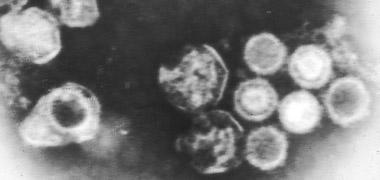
Linda Bartlett/Wikimedia Commons
Our scientists discover the 1st human cancer virus, after finding that Burkitt’s lymphoma may be due to an infection.
The Epstein-Barr virus also causes other types of cancer, including some Hodgkin lymphomas. It can also cause lymphomas in people with weakened immune systems.
Transforming the outlook for choriocarcinoma (1963)

Transforming the outlook for choriocarcinoma (1963)

Our researchers transform the outlook for women with a rare cancer linked with pregnancy.
One of our scientists is the 1st to use a combination of 2 drugs, methotrexate (Maxtrex) and mercaptopurine (Xaluprine), to treat the disease.
Survival for this cancer, choriocarcinoma, doubled within a few years and today almost all women are cured.
1950s
Pioneering work on UK cervical screening (1956)
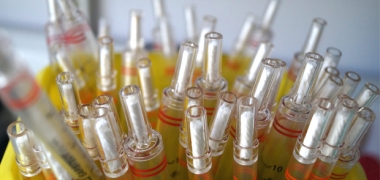
Pioneering work on UK cervical screening (1956)

Our scientists carry out some of the earliest studies of cervical screening, preventing an epidemic of the disease in the UK.
Their work plays a central role in introducing the national cervical screening programme.
Building evidence on links between smoking and lung cancer (1950)

Building evidence on links between smoking and lung cancer (1950)

Bringing to light the dangers of smoking on health, studies start to find early evidence that smoking could have a role in lung cancer.
Professor Sir Richard Doll publishes work where information was collected from across 20 hospitals, which strongly suggests a link between smoking and cancer. This study is among the first to document such a link.
He also begins a 50-year research project, which we help fund. This research goes on to provide detailed evidence on the impact of smoking on lung cancer risk.
1940s
Designing a new system to classify bowel cancers (1949)
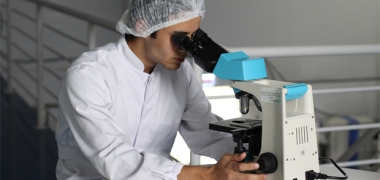
Designing a new system to classify bowel cancers (1949)

Doctors can now better plan the best treatment and care for people with bowel cancer. Our scientists make this possible by designing a system for classifying the disease.
Called the Duke's staging system, this important method is now used all across the world.
Introducing the 1st ever chemotherapy drugs (1948)
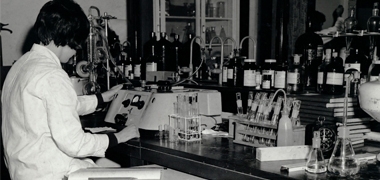
Introducing the 1st ever chemotherapy drugs (1948)

Helping to save the lives of countless patients, our research plays a part in introducing a new era of cancer treatment, chemotherapy.
In the aftermath of World War I, one of our scientists discovers new chemicals based on mustard gas.
This leads to the development of 3 important chemotherapy drugs: chlorambucil (Leukeran), melphalan (Alkeran) and busulfan (Myleran).
These drugs are still used today to treat some cancers affecting the blood and immune system.
1930s
Pioneering the 1st hormone treatment for prostate cancer (1938)

Pioneering the 1st hormone treatment for prostate cancer (1938)

We pioneer the development of hormone treatments for cancer, when our scientists develop the 1st ever man-made hormone.
It becomes the treatment of choice for over 40 years for people with advanced prostate cancer, and paves the way for today’s hormone therapies.
Alerting people of the risks of sun exposure (1935)

Alerting people of the risks of sun exposure (1935)

We help encourage people to take care of their skin and lower their risk of skin cancer.
Cancer Research UK is among the 1st to alert people about the link between sun exposure and skin cancer after we issue our 1st warning.
Today, this message still forms the basis of our current Own Your Tone campaign.
Underpinning the development of modern radiotherapy (1930s)
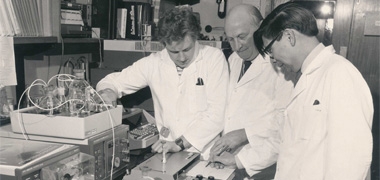
Underpinning the development of modern radiotherapy (1930s)

Saving 1000s of lives, radiotherapy is a cornerstone of cancer treatment today.
It is our early research that lays the foundations for the development of modern radiotherapy.
We fund radiotherapy pioneers, including Hal Gray and Valentine Mayneord. They show how cancer cells respond to radiation and establish guiding principles for its use.
1920s
Helping show that bowel cancer can run in families (1925)

Helping show that bowel cancer can run in families (1925)

Our scientists are among the first to publish family trees of people affected by hereditary bowel cancer.
This helps shed early light on risk factors for the disease.
Pioneering research into treating cancer with radiation (1923)
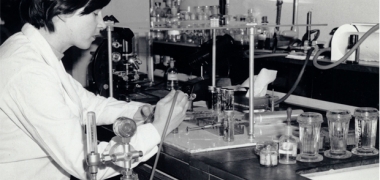
Pioneering research into treating cancer with radiation (1923)

Today radiotherapy treats most cancers types and cures more people than cancer drugs.
We support some of the earliest research into the treatment of cancer with radiation. Back in 1923, we buy radiation to treat women with cervical cancer.
Taking the earliest steps towards bowel screening (1920s)
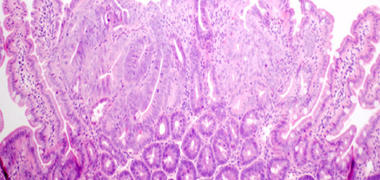
CRUK LRI Experimental Histopathology Unit
Taking the earliest steps towards bowel screening (1920s)

CRUK LRI Experimental Histopathology Unit
Our researchers take the 1st steps towards modern bowel screening and diagnosis.
They form a technique for taking samples of bowel tumours using a special tube called a sigmoidoscope.
1910s
Early steps towards breast cancer prevention (1911)

Early steps towards breast cancer prevention (1911)

An early step in prevention, our researchers discover that some cases of breast cancer in mice run in families.
This suggests that there might be an inherited component to the disease, more than 80 years before the first gene linked with inherited breast cancer – BRCA – is discovered in 1994.
1900s
Beginning the Cancer Research UK journey (1902)

Beginning the Cancer Research UK journey (1902)

The Cancer Research UK story begins.
From focusing on studying cancer in the lab, to finding new approaches to treatment, the Imperial Cancer Research Fund forms in 1902.
This is one of our predecessors which later merges with another organisation, Cancer Research Campaign, to become Cancer Research UK.
 Beating cancer: our progress
Beating cancer: our progress